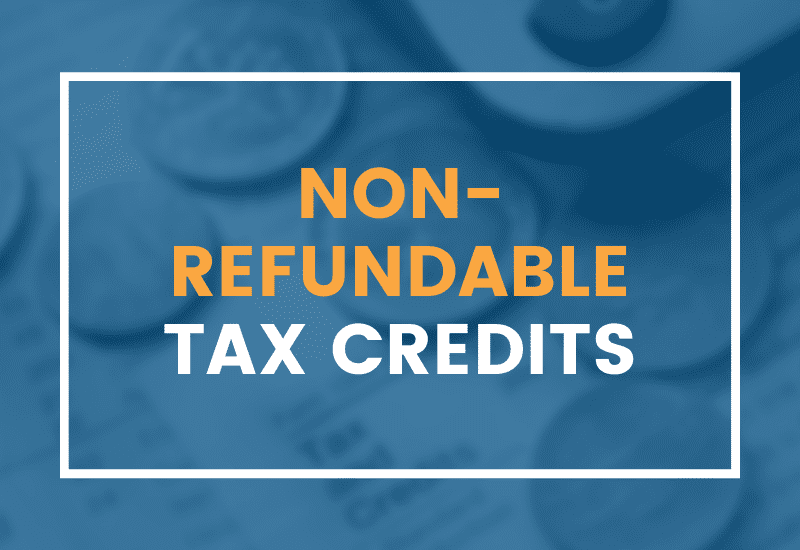Non-refundable Tax Credits
- February 23, 2022
- Posted by: CKH Group
- Category: Tax tips

Understanding Non-refundable Tax Credits: What You Need to Know
Tax season often brings with it a host of questions, especially when it comes to maximizing tax credits. One area that can cause confusion is the concept of non-refundable tax credits. These credits play a significant role in reducing your tax liability, but they come with specific limitations that every taxpayer should understand. In this article, we’ll dive deep into what non-refundable tax credits are, how they work, and the key points you should keep in mind when filing your taxes.
What Are Non-refundable Tax Credits?
Non-refundable tax credits are a type of tax credit that can only reduce the amount of tax you owe. Unlike refundable tax credits, which can result in a refund even if the credit exceeds your total tax liability, non-refundable credits are limited to the amount of tax you owe. If the credit is more than your tax liability, the excess amount is forfeited, meaning you won’t receive any additional benefit or refund from it.
Non-refundable tax credits are sometimes referred to as “wasteable” credits because any unused portion of the credit cannot be carried over to the next tax year or refunded to you. This is in stark contrast to refundable tax credits, which can provide you with a refund even if your tax liability is zero. To learn more about refundable tax credits, you can read our detailed guide here – Understanding Refundable Tax Credits.
How Do Non-refundable Tax Credits Work?
The IRS offers various tax credits designed to reduce your overall tax liability. These credits are applied directly to the amount of tax you owe after all applicable deductions have been made from your taxable income. This process reduces your total tax bill on a dollar-for-dollar basis.
For example, let’s say your tax liability is $3,000, and you qualify for a $3,400 non-refundable tax credit. In this case, the credit will reduce your tax bill to zero, but the remaining $400 will be forfeited. You won’t receive that extra $400 as a refund or be able to apply it to future tax years. This characteristic is what distinguishes non-refundable tax credits from their refundable counterparts.
Key Considerations for Non-refundable Tax Credits
When planning your taxes, it’s crucial to understand how to effectively utilize non-refundable tax credits. Here are some important points to keep in mind:
- Prioritize Non-refundable Credits First: Non-refundable tax credits should be used before applying any refundable credits. This strategy ensures that you minimize your tax liability as much as possible. Once your non-refundable credits have reduced your tax bill to zero, you can then apply refundable credits to potentially receive a refund.
- Order of Application Matters: If you mistakenly apply refundable credits first, you may miss out on the benefits of non-refundable credits. Using refundable credits upfront can reduce your tax bill to zero, leaving no room for non-refundable credits to have any impact. As a result, you could lose out on tax savings that would have been available had you applied the credits in the correct order.
- Non-refundable Credits Expire: Unlike some deductions or carryover credits, non-refundable tax credits must be used in the year they are claimed. They cannot be carried forward to future tax years, nor can they be applied retroactively. If you don’t use them within the tax year, they expire once your return is filed, meaning you lose the benefit entirely.
- Specific Eligibility Requirements: Each non-refundable tax credit has its own set of eligibility criteria. It’s essential to carefully review the requirements for each credit to ensure you qualify. Some common non-refundable tax credits include the Child Tax Credit (partially non-refundable), the Lifetime Learning Credit, and the Saver’s Credit.
Conclusion
Non-refundable tax credits can be a powerful tool in reducing your tax liability, but they come with specific limitations that require careful planning. By understanding how these credits work and applying them strategically, you can maximize your tax savings. However, it’s important to remember that non-refundable credits must be used within the tax year and should be prioritized before refundable credits to avoid forfeiting potential benefits.
For personalized guidance on how to effectively use non-refundable tax credits, or if you have any questions about your tax situation, don’t hesitate to reach out to CKH Group. Our team of tax experts is here to help you navigate the complexities of the tax system and ensure you’re getting the most out of your credits. Contact us today to schedule a consultation! You can also call us at 1-770-495-9077 or email us at [email protected]
The above article only intends to provide general financial information and is based on open-source facts, it is not designed to provide specific advice or recommendations for any individual. It does not give personalized tax, financial, or other business and professional advice. Before taking any form of action, you should consult a financial professional who understands your particular situation. CKH Group will not be held liable for any harm/errors/claims arising from the articles. Whilst every effort has been taken to ensure the accuracy of the contents, we will not be held accountable for any changes that are beyond our control.
